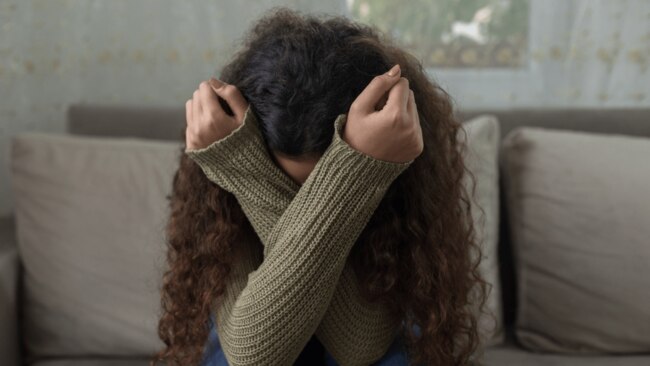Girls who start puberty earlier have an increased risk of anxiety and depression, study shows
It's not called puberty blues for nothing
Lifestyle
Don't miss out on the headlines from Lifestyle. Followed categories will be added to My News.
In this article:
Why the average age of puberty onset is decreasing in recent decades.
The physical and physiological impact of precocious puberty
Why mental health issues increase with young girls who develop early
Puberty is uncomfortable at the best of times, but new research suggests young girls who undergo precocious puberty may be getting the short end of the stick – especially when it comes to their mental health.
No person on Earth remembers the emotional and physical changes that came with adolescence fondly – or at least not entirely.
As important as puberty is as a developmental milestone, bridging the gap between childhood and adulthood, boy can it be a difficult pill to swallow.
Between the startling reality of a young woman’s first period, to the body hair, odour and awkward growth spurts that touch us all, adolescence challenges self-confidence like nothing else.
And while your first period, wet dream or stinky armpit could theoretically be a laughable bonding experience should all your friends go through it at the same time, puberty touches each individual at totally different (and often unexpected) times.
Is puberty starting earlier?
Studies have shown the age at which adolescents first undergo sexual development has decreased considerably in just a few centuries. For example, one study conducted in 1860 determined the average age of European girls got their first period at age 16 – three years more mature than the average age in 1950.
The age has somewhat stabilised now in developed countries, according to Nandita Vijayakumar, a cognitive neuroscientist at Deakin University and the Murdoch Children's Research Institute.
"When we looked at the age of first period, it was pretty consistent with reports [from elsewhere around the world] that have come out from the past three decades," Dr Vijayakumar tells ABC.

Still, an increasing number of young individuals – particularly girls – are beginning to undergo sexual maturity considerably sooner, known as early-onset, or ‘precocious puberty’. Why? While there are a number of contributing influences, experts believe environmental factors such as nutrition are to blame.
"These environmental factors could have stabilised in Western societies a little bit earlier potentially than developing countries, but I don't think we know for certain," Dr Vijayakumar says, referring to data that found girls in the US grew breast buds between the ages of 9 and 10 years old, while girls in Africa began the developmental milestone between the ages of 10 and 13 years.
In addition to environmental factors, there’s also a harrowing evolutionary reason we seem to be developing earlier.
"The goal of our existence is to reproduce and have babies," University of Melbourne neuroscientist Sarah Whittle tells ABC. "If there's a threat in the environment indicating you might die imminently, then you better speed up that development."

The psychological impact of early-onset puberty
Recent studies into the collective mental health of young Australians have revealed some startling data, with one survey finding roughly 1 per cent of girls aged 4 to 11 years experienced a major depressive episode the year prior. The number jumps to 6 per cent for girls aged 12 to 17, with 8 per cent being affected by an anxiety disorder.
From a development perspective, the onset of puberty sees a surge in hormones that render an individual extremely sensitive, while the prefrontal cortex (responsible for high-level cognitive skills), matures at a slower rate.
In turn, these two varying developmental changes are responsible for a dramatic rise in mental health conditions in young Aussies, an issue that new research says is only intensified for those experiencing precocious puberty.
Girls who go through puberty before their peers are forced to reckon with their developing bodies, sexualisation from the outside world, and a torrent of hormonal and emotional changes – while their classmates remain unchanged.
As a result, experts say many younger developing Aussies can feel pressure to ‘grow up’, exposing themselves to alcohol, drugs and adult activities at an earlier age, no doubt increasing their risk of mental health issues further.
More Coverage
Originally published as Girls who start puberty earlier have an increased risk of anxiety and depression, study shows




